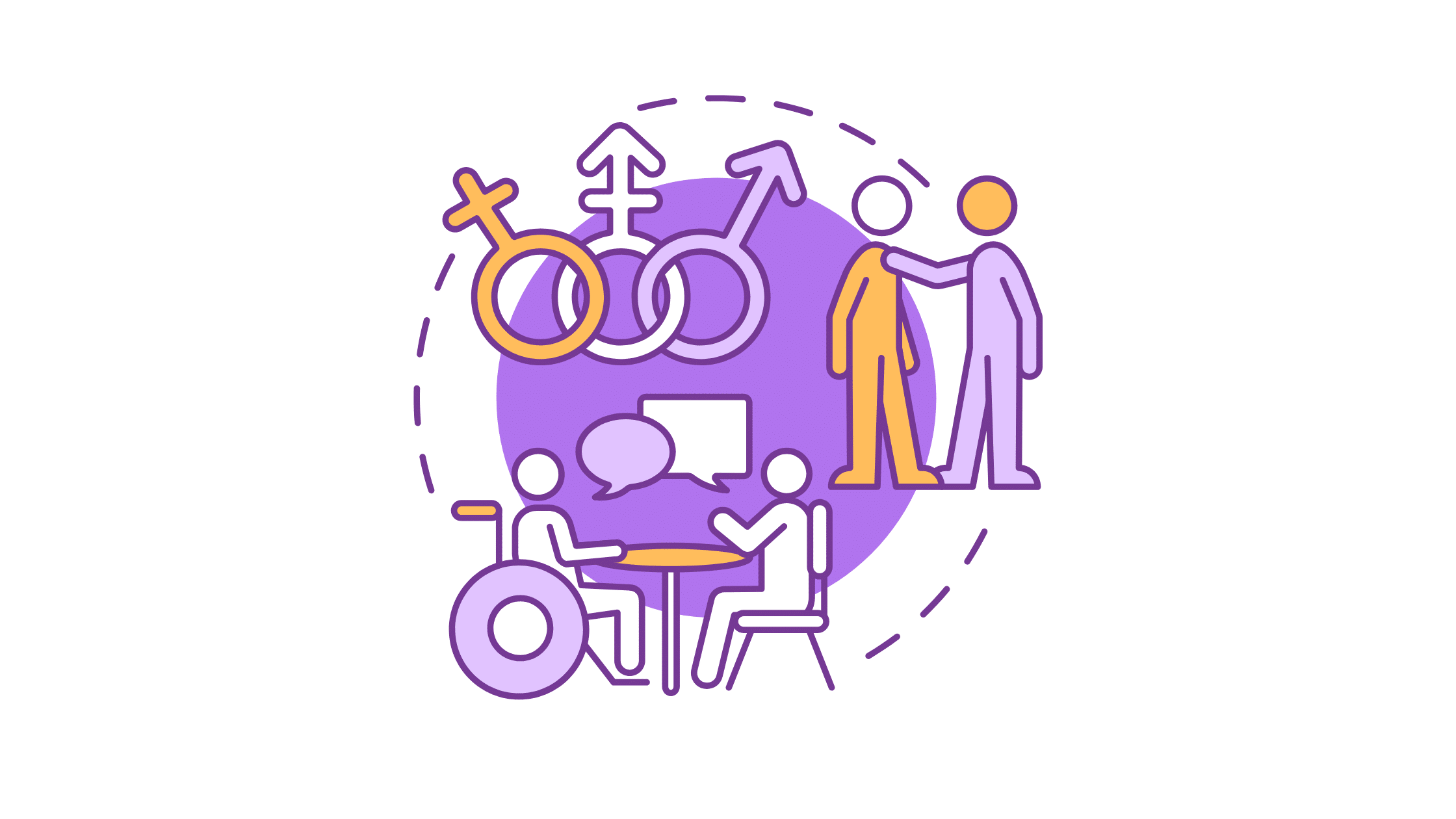
How Can a Mentor Help You Along the Journey to Your Dream Job?
Quick Answer: A mentor can play a transformative role in your journey to your dream job by offering personalized guidance, real-world insights, and career-building strategies you won’t find in textbooks. From helping you identify your strengths and set achievable goals to reviewing your resume, improving interview skills, and expanding your professional network—a mentor becomes both a coach and a catalyst. This guide explores how mentorship accelerates your career path, boosts confidence, and helps you avoid common mistakes as you navigate toward your dream role.
The Power of Mentorship in Landing Your Dream Job
In today’s hyper-competitive job market, where every opportunity is flooded with countless resumes and cover letters, having a mentor can be the game-changer that sets you apart.
A mentor is not just someone who shares advice—they are a guide, a strategist, and often a quiet force behind many success stories. From refining your career goals to opening doors through their network, a mentor helps you make smarter choices, avoid costly mistakes, and stay focused on your end goal: your dream job.
Whether you're just starting your career, switching industries, or trying to break into a competitive field like tech, finance, or media, mentors offer something job portals and career blogs can't—personalized guidance backed by real-world experience.
Recent studies from the Harvard Business Review and LinkedIn show that professionals with mentors are 5x more likely to get promoted and 67% more likely to stay in their desired industry. But what exactly makes someone a mentor? And how do they actually help you reach your career goals? (Source)
In this blog, we’ll explore the practical ways a mentor accelerates your journey to your dream job, what qualifies someone to become a mentor, and how to find the right one for your aspirations.
Let’s begin by understanding what a mentor really is—and who qualifies as one.
What Exactly Is a Mentor? And What Qualifies Someone as One?
A mentor is more than just a successful person giving advice—they are a trusted guide who supports, challenges, and encourages you to grow professionally and personally. The foundation of mentorship lies in experience, empathy, and the willingness to invest in someone else’s journey.
So, what qualifies someone as a mentor?
A mentor doesn’t need to have a fancy title or decades of experience. What truly qualifies someone as a mentor is:
- Relevant experience in your field or desired career path
- A track record of overcoming professional challenges
- Good communication and listening skills
- A willingness to share knowledge without expecting anything in return
- The ability to give honest, constructive feedback
They can be a manager, a college senior, a former professor, a colleague, an industry expert you met at a seminar, or even someone you connect with on LinkedIn or a mentorship platform.
What qualifies someone as a mentor, according to Dave Ramsey?
Dave Ramsey, a well-known personal finance coach and leadership expert, defines a mentor as someone who “has been where you want to go.” According to Ramsey, a mentor should possess both experience and character—meaning they have succeeded in your field of interest and live by values worth emulating.
◆“Don't take directions from someone who hasn’t been where you're going. A mentor should have already made the journey you’re about to begin.” — Dave Ramsey
In essence, a mentor is not necessarily the best in the field—they’re simply a few steps ahead of you, and willing to help you climb.
7 Ways a Mentor Helps You Land Your Dream Job
Landing your dream job isn’t just about having the right degree or a polished resume. It’s about making smart decisions at every step—and that’s where a mentor comes in. Here are seven practical ways a mentor can accelerate your path to your ideal career:
1. Clarifying Career Goals
Many people chase jobs that don’t align with their long-term goals simply because they don’t have clarity. A mentor can help you identify your strengths, interests, and values, then match them with realistic career paths. This saves time and prevents burnout.
2. Bridging the Skill Gap
Mentors can identify the skills and certifications you need to become job-ready. Whether it’s learning Python, brushing up on communication skills, or building a portfolio, they help prioritize what really matters.
3. Improving Your Resume and Interview Strategy
Mentors have often reviewed dozens, if not hundreds, of resumes and have conducted interviews themselves. They know what recruiters are looking for. From optimizing your resume to conducting mock interviews, their feedback is a priceless advantage.
4. Expanding Your Professional Network
A well-connected mentor can introduce you to hiring managers, recruiters, alumni, and professionals in your dream company. In many industries, opportunities come from conversations, not job boards.
5. Offering Real-World Insights
Mentors can share what textbooks and career blogs don’t—what it really takes to succeed in a role or industry. This might include workplace politics, negotiation tips, or company-specific expectations.
6. Accountability and Encouragement
Your mentor isn’t just a guide—they’re your accountability partner. When you’re stuck, demotivated, or unsure, they help you push forward with purpose.
7. Helping You Navigate Career Setbacks
Didn’t get the internship? Bombed an interview? Mentors have been there. They provide context, encouragement, and strategies to bounce back stronger.

Who Can Be a Mentor in Your Life? (And How to Find the Right One)
Not all mentors wear formal titles or hold executive positions. In reality, mentors can come from many places—you just need to know what to look for and how to reach out.
✅ Who Can Be a Mentor?
- Professors or Lecturers: Great for students seeking academic guidance or research careers.
- Managers or Team Leads: Offer insights into workplace dynamics and career progression.
- Senior Colleagues: Understand the nuances of your industry and can help you avoid pitfalls.
- Alumni from Your School or College: Especially helpful if you’re entering the same field.
- Industry Experts on LinkedIn: Many are open to mentoring if you approach respectfully.
- Online Communities (like Reddit’s r/careerguidance, Quora, or Slack groups): Sometimes the best advice comes from peers just a few steps ahead of you.
◆🧭 Tip: A good mentor doesn’t need to be older—they just need relevant experience, empathy, and a willingness to help.
🔍 How to Find a Mentor: Step-by-Step
| Step | Action | Tool or Platform |
|---|---|---|
| 1 | Define your career goal | Self-reflection or journaling |
| 2 | Identify 5–10 potential mentors | LinkedIn, college alumni network, workplace |
| 3 | Reach out with a clear message | LinkedIn, email, Slack, Discord |
| 4 | Be specific about what you need | Ask for feedback on resume, job prep, or goal clarity |
| 5 | Build a relationship, not a transaction | Follow up, express gratitude, and stay consistent |
◆“Want to build a strong student network? Read How to Improve Your Concentration While Studying to learn how mentorship improves focus and planning.”
Key Traits and Qualities of a Great Mentor
While anyone can give advice, not everyone can be a great mentor. True mentors don’t just answer questions—they ask the right ones, challenge you, and walk beside you during uncertain times. So, what separates a great mentor from an average one?
🔑 Essential Qualities of an Effective Mentor
- Empathy: A great mentor listens first. They understand your struggles, whether it's imposter syndrome, rejection, or confusion, and respond without judgment.
- Experience: While they don’t need to be CEOs, mentors must have walked a path similar to yours. Their credibility comes from doing—not just knowing.
- Honesty: A good mentor tells you the truth, even if it’s uncomfortable. They point out your blind spots and offer constructive feedback to help you grow.
- Consistency & Availability: Great mentors show up. It doesn’t mean weekly calls, but they make time and follow through on their commitments.
- Goal-Oriented Thinking: They help you set clear, actionable career goals and hold you accountable as you work towards them.
- Encouragement Without Sugar-Coating: Motivation matters—but so does realism. Good mentors balance both to keep you grounded and driven.
- Strong Communication Skills: Mentors should be able to simplify complex ideas, give clear feedback, and offer practical examples from their own experience.
❗Bonus: Red Flags to Watch Out For
- They're always busy and miss scheduled calls
- They dominate the conversation or make it about themselves
- They discourage your ideas without explaining why
- They’re vague and non-committal about your growth
◆✨ Remember: The best mentor doesn’t just give you answers—they teach you how to ask the right questions and find your own.
The 3 A’s and 3 C’s of Mentorship: Foundations of a Strong Mentoring Relationship
Effective mentorship isn’t just built on good intentions—it’s built on structure, trust, and mutual effort. Two well-recognized frameworks that define successful mentor-mentee relationships are the 3 A’s and 3 C’s of mentorship.
🎯 The 3 A’s of Mentorship
These describe the core attributes that a mentor should consistently display:
Availability
- A mentor should be accessible and responsive. You don’t need constant attention, but regular check-ins are key.
- 📝 Example: Monthly video calls, follow-up on tasks, quick replies to important questions.
Active Listening
- Good mentors don’t interrupt or rush advice. They listen with the intent to understand—not to respond.
- 🧠 Why it matters: It helps them tailor their guidance to your actual needs.
Accountability
- A mentor not only holds you accountable but also honors their own promises—whether it’s reviewing your resume or setting up a mock interview.
- 📌 Pro tip: Set action items after every meeting to track progress.
🧩 The 3 C’s of Mentorship
These represent the roles a mentor plays throughout your journey:
Coach
- Helps you sharpen skills, solve problems, and prepare for interviews or pitches.
Counselor
- Offers emotional support and encouragement during self-doubt, rejections, or career pivots.
Connector
- Introduces you to people, opportunities, and resources you may never find on your own.

How Mentoring Helps the Mentor: The Win-Win Side of Mentorship
Mentorship is often seen as a one-way street, where the mentor gives and the mentee gains. But in reality, it’s a two-way relationship. Great mentors grow, learn, and benefit just as much from the process.
🔄 Benefits Mentors Receive
1. Refined Leadership Skills
Explaining concepts, giving feedback, and coaching someone sharpens a mentor’s communication and leadership style. It helps them become more empathetic and organized leaders in their own careers.
2. Fresh Perspectives
Mentees often come with new ideas, fresh trends, and different ways of thinking. This diversity of thought challenges mentors and keeps them in touch with generational shifts and emerging technologies.
3. Expanded Professional Network
Mentors often get introduced to new people via their mentees—whether it’s other aspiring professionals, educational institutions, or early-stage startups. This expands their ecosystem.
4. Personal Satisfaction & Purpose
Helping someone reach their dream job brings deep emotional fulfillment. It reinforces the mentor’s sense of purpose and legacy.
◆“Mentoring isn’t just about changing someone else’s life—it changes yours too.” — Unknown
5. Learning Through Teaching
The process of teaching forces clarity. Mentors often find they better understand their own career journeys, decisions, and values when articulating them to someone else.
👥 Bonus Insight:
Many organizations, especially in tech and education, encourage mentorship programs because it reduces turnover and boosts employee engagement—a benefit for both sides.
FAQs
To wrap up this guide, here are answers to some of the most searched and community-asked questions across platforms like Quora, Reddit, and LinkedIn.
❓What qualifies someone as a mentor?
Someone who has relevant experience, empathy, and a willingness to guide others. They don't have to be the top expert—just a few steps ahead of you in your desired journey, with the ability to give thoughtful feedback and guidance.
❓What qualifies someone as a mentor, Ramsey?
Dave Ramsey says a mentor should “have been where you want to go.” For him, mentorship is based on character, values, and proven success in a specific area. They should embody the life or career path you aspire to reach.
❓How do you qualify as a mentor?
You qualify as a mentor when you have knowledge, experience, and the willingness to share it constructively. You should also be approachable, honest, and able to commit time to help others grow.
❓What are the 3 A’s of mentorship?
- Availability – Being accessible and responsive
- Active Listening – Truly understanding before advising
- Accountability – Holding both yourself and your mentee responsible for growth
❓What qualities does a mentor need?
- Empathy
- Honesty
- Industry knowledge
- Patience
- Communication skills
- Commitment
❓Who can be a mentor in your life?
Mentors can be professors, managers, alumni, senior colleagues, or even professionals you connect with on platforms like LinkedIn. Even online mentors (through content or communities) can be valuable.
❓What are the 3 C’s of mentorship?
- Coach – Provides skill-based guidance
- Counselor – Offers emotional and moral support
- Connector – Opens doors to new opportunities and people
❓What are the golden rules of mentoring
- Build trust early
- Set clear goals and expectations
- Keep communication open and respectful
- Offer and accept feedback graciously
- Be consistent and committed
Case Study: How a Mentor Helped Land a Dream Job at Google
To understand how mentorship plays out in the real world, let’s explore the journey of Aisha, a software engineering graduate from India who transitioned from a Tier-3 college to a coveted position at Google—all with the guidance of a mentor.
👩💻 Background
- Name: Aisha R.
- Goal: To land a job in a top-tier tech company
- Challenge: Limited access to mock interviews, guidance, and feedback in her college
- Solution: Found a mentor via LinkedIn who was an SDE-II at Amazon
📈 Mentorship Timeline
| Month | Milestone | Mentor’s Role |
|---|---|---|
| Month 1 | Resume Revamp | Gave ATS optimization tips and reviewed line-by-line |
| Month 2 | DSA Practice Routine | Built a daily schedule, solved 200+ Leetcode problems |
| Month 3 | Mock Interviews | Conducted 6 live technical mock interviews |
| Month 4 | Confidence Building | Weekly check-ins + behavioral interview prep |
| Month 5 | Final Rounds | Prepped for Google’s on-site rounds and system design |
🏆 Outcome
Aisha cracked 4 FAANG-level interviews and accepted an offer at Google India, crediting 80% of her behavioral and technical prep success to her mentor.
✨ Why This Worked
- Her mentor was available weekly (Availability ✅)
- Provided direct and honest feedback (Accountability ✅)
- Encouraged her without sugarcoating her gaps (Empathy ✅)
- Introduced her to hiring managers via LinkedIn (Connector ✅)
◆💬 Aisha’s Quote:“I wasn’t just learning technical skills—I was learning how to believe in myself. My mentor didn’t give me answers. He taught me how to ask better questions.”
Conclusion
The path to your dream job isn’t just about hard skills or luck—it’s also about the right people guiding you at the right time. A mentor accelerates your journey by helping you avoid common mistakes, providing clarity during uncertainty, and connecting you to opportunities you might never find alone.
Whether you’re a student, a mid-career switcher, or a self-taught learner, mentorship is the single most underrated asset in your career toolkit.
🔑 Key Takeaways:
- A mentor is not just someone successful—they’re someone invested in your success.
- Great mentorship is built on availability, active listening, and accountability.
- Both mentor and mentee grow together, learning through each other’s experiences.
- You can find mentors anywhere—colleges, companies, online platforms like LinkedIn, Reddit, or even communities like IndieHackers, GitHub, or Quora.
- Don’t wait for the “perfect” mentor. Reach out, start small, and build meaningful connections.



